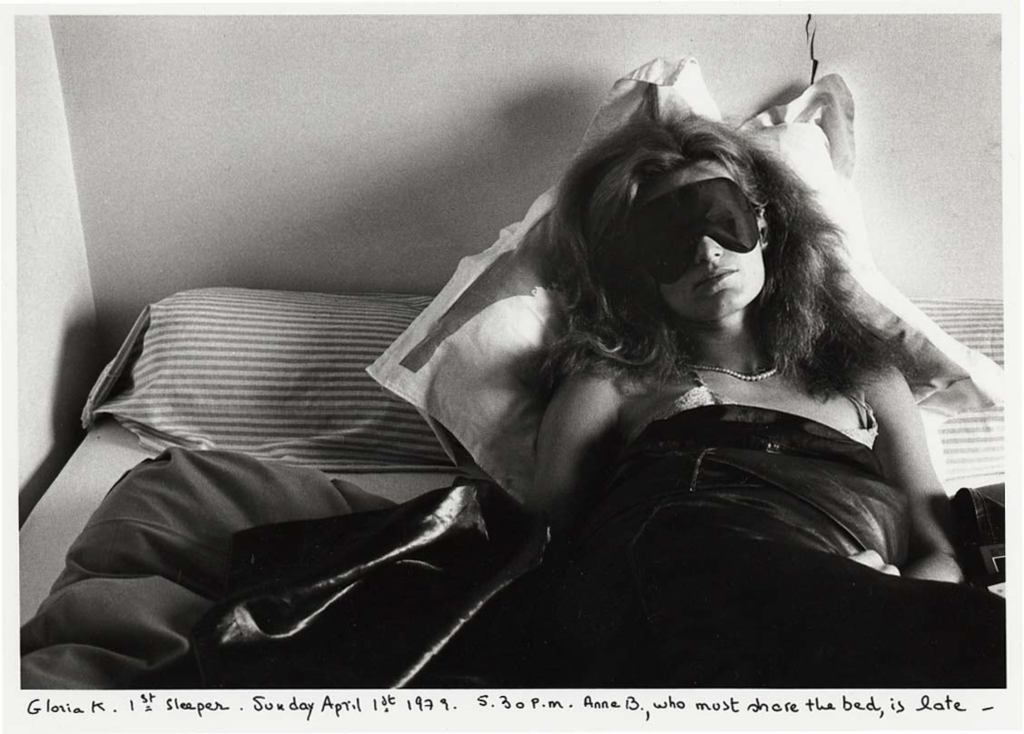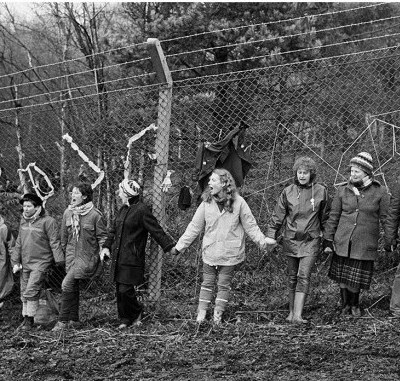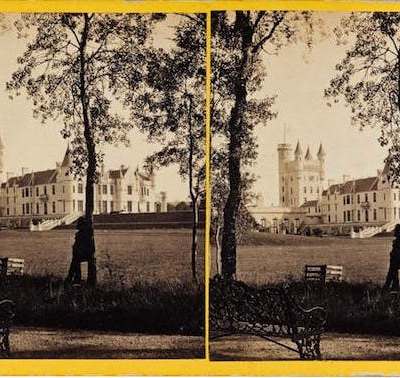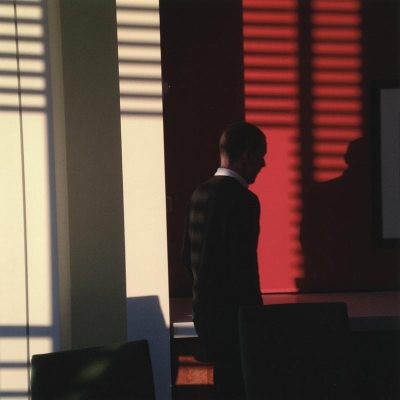‘I believe in the future resolution’, Andre Breton wrote in 1924, of ‘dream and reality…into a kind of absolute reality, a surreality.’ His declaration helped to inspire a century’s worth of artistic expeditions into the subconscious, though we are no closer today to achieving the ‘resolution’ he so confidently foresaw. Photography, which is often regarded as a realist medium, might seem unsuited to surrealism: in fact, it’s been at the forefront of the movement. And one need only visit ‘Dream States’, at New York’s Metropolitan Museum of Art until 30 October, to know how diverse and rewarding photographers’ contributions to surrealism have been.
As a curatorial idea, ‘Dream States’ is simple: it presents some 30 photographs from the Met’s vast collection, that in some way relate to the experience of dreaming. What makes the exhibition exciting is the range and calibre of photographers whose work is featured. Indeed, ‘Dream States’s catalogue is a veritable mini-pantheon of photography, comprising images by today’s stars including Shomei Tomatsu, Nan Goldin, and Anselm Kiefer, as well as classics by the likes of Eugène Atget and Brassaï.
Photographers like Jem Southam and Liz Deschenes capture landscapes that have a naturally eerie and dreamlike quality. Southam, a British photographer known for his moody pastoral landscapes, depicts artificial ‘dew ponds’ dug out for watering livestock. These giant puddles sit in unpopulated meadows like lonely eyes, reflecting the grey sky and suggesting but never quite articulating – as dreams often do – a tranquil and otherworldly truth. Liz Deschenes goes further to explore our subconscious depths, and shoots 210ft below sea level, on the parched floor of California’s Death Valley. Her picture is so strange and desolate that it seems unnatural, as if generated by computer software.
We remember dreams as much for their texture as for their content, and some of ‘Dream States’s photographers have tried to explore the mythic and narrative aspects of our subconscious. Florida-based Bea Nettles (who, fittingly, got the inspiration for her project in a dream) took pictures of her friends and family which she then used to make ‘tarot cards’ representing the archetypes – king, queen, strength, bravery – that populate the pseudo-metaphysical systems to which so many people are drawn. It’s a charming interdisciplinary work, one that captures the seamless juxtaposition of real and supernatural that gives dreams their visceral power. Grete Stern, a Bauhaus-trained German immigrant who moved to Buenos Aires in the 1930s, uses the technique of photomontage to achieve similar effects. Stern pictorially represented readers’ dreams for a women’s magazine column titled ‘El psicoanálisis le ayudará’ (‘Psychoanalysis will help you’). Her Dream No. 1: Electrical Appliances for the Home, which depicts a huge male hand turning on a table-light whose stem is an elegantly dressed woman, is one of the cleverest and most forceful photographic critiques of misogyny that I know.
French Chris on the Convertible, NYC (1979), Nan Goldin. © Nan Goldin Courtesy Matthew Marks Gallery
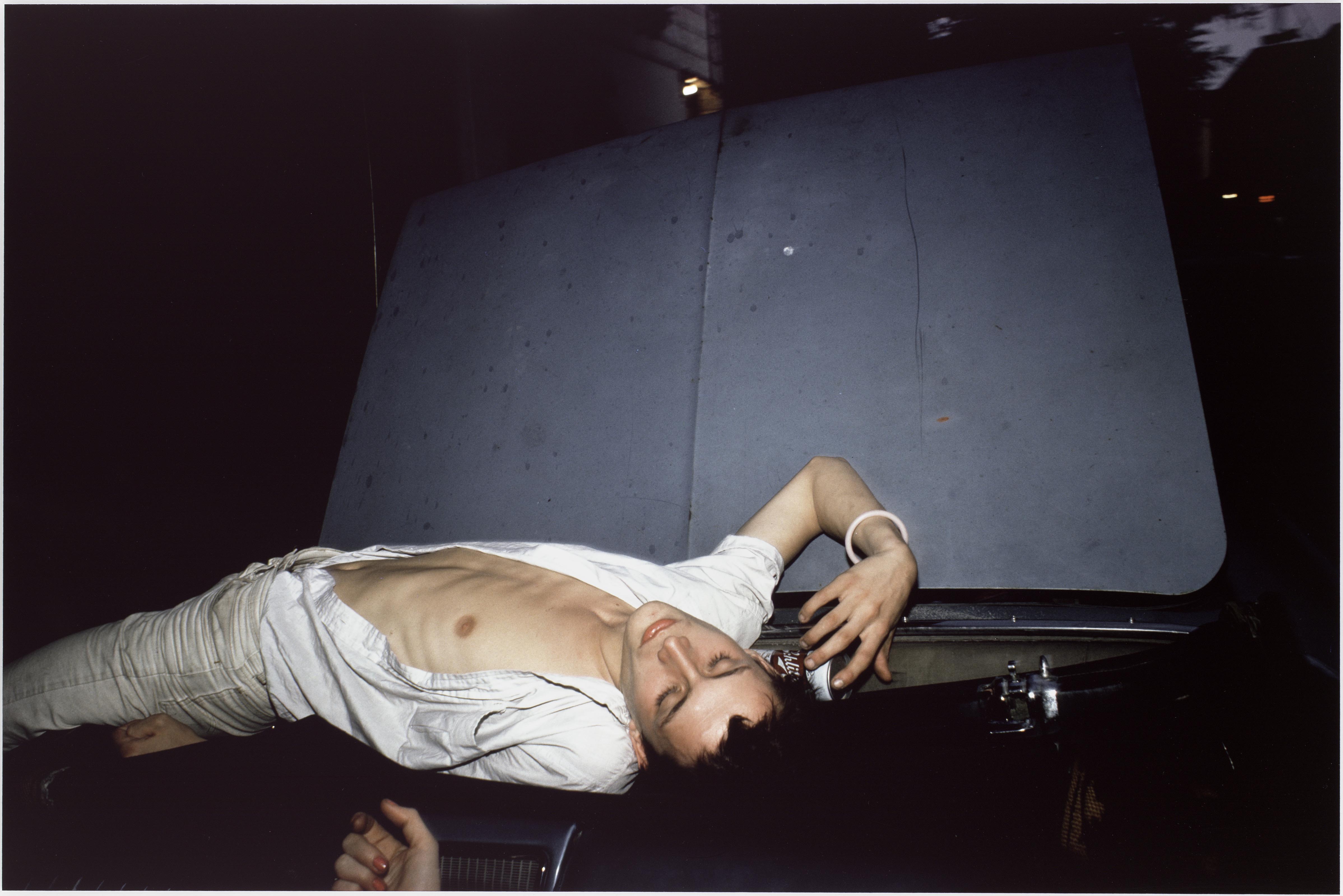
Finally, some of the photographs (and most of those taken by the big names) in ‘Dream States’ are not concerned with the subconscious, but simply with people sleeping. Sophie Calle, for instance, invited friends to sleep in her bed and photographed them at regular intervals. This was done for her early body of work, The Sleepers (1979), and has much of the voyeuristic charm that’s come to define her career. Peter Hujar and Robert Frank, meanwhile, make eloquent social critiques with their work. Hujar’s photograph of an unconscious twenty-something on the floor outside his apartment captures the dark side of New York’s party-obsessed culture. Frank depicts a black man asleep by himself on a New York beach, away from the distant lights of a New Year’s Eve celebration. And what about Nan Goldin’s wonderfully moody photograph of French Chris passed out on car bonnet with a Budweiser can? He’s certainly too drunk to remember his dreams.
All in all, ‘Dream States’ is a lively and thought-provoking exhibition. If it lacks anything, it’s the sustained pleasure of studying different works by a single photographer. For that, there are a number of individual photography exhibitions currently on display in New York. Click here for a round up of some standout shows.
‘Dream States: Contemporary Photographs and Video’ is at the Metropolitan Museum of Art, New York, until 30 October.
